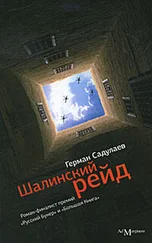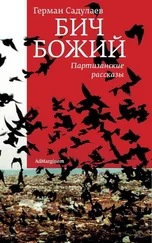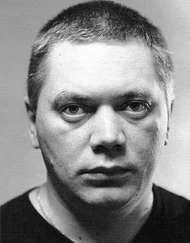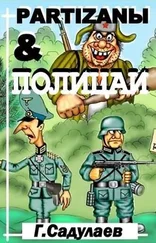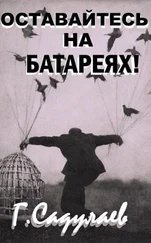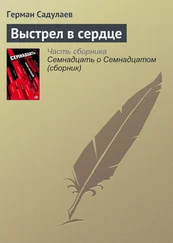Against our own people, maybe? After all, an ordinary policeman, hungry and therefore himself by necessity a thief, is also one of the people. So what if he refuses to shoot at his own countrymen? Naturally, in that case it makes more sense for Gazprom to have its own units, to ensure that they have no other priorities.
The article says: “This decision, experts believe, is primarily justified in that it addresses the potential breakdowns and risks associated with the human factor.” Understood. Everything would be fine if it weren’t for the human factor; you simply can’t trust people. Especially your own citizens—workers as well as the general public. They might, for example, go on strike. Or launch some kind of public protest—march in the streets or something. And that’s the last thing the pipeline needs; it must function reliably, without interruption.
May I make a suggestion? Let Gazprom and Transneft recruit their regiments from among the native warriors of the savage Tulgandyr tribe. That will take care of any potential problems. The Tulgandyrs speak no Russian, are illiterate, have no trade unions, and are good marksmen! I happen to be one of the few people who know how to get them a message, and I would be willing to undertake the task of recruiting them myself, for a small commission.
And here’s another flash of insight: The pipeline defense army isn’t actually a part of the Russian Federation military, right? Right. It’s a separate army, commercial in nature. Conveniently, then, it isn’t bound by Russia’s responsibilities, isn’t constrained by local or international law. And why not? Why shouldn’t it declare itself exterritorial? To wit: Its task is to defend the pipeline, wherever the pipeline might lie. Let’s say someone tries to siphon off gas from somewhere, say, in Ukraine. Gazprom tank divisions are deployed onto Ukrainian territory, which is independent from Russia. The President of Ukraine attempts to call the Russian President, but can’t get through: “We’re sorry, the subscriber you have dialed cannot be reached.” Three days later the subscriber shows up in person and explains that his cell battery had died. He explains to the President of Ukraine that Gazprom is a commercial organization and has to defend its interests, but he is a government official and lacks the authority to get involved in the case. Then to Europe he will explain that they don’t understand, that we have to do this in order to guarantee uninterrupted gas deliveries and the fulfillment of our obligations to them. And Europe will remain silent.
So you see, there is a wealth of geopolitical implication to all this. It’s not the first time. Take the East India Company. It wasn’t Britain that occupied India, as I recall, but this corporation, which had its own troops and paid taxes like any business. The legislators and administrators who supported them serve as an instructive example that is relevant to us today!
That said, let us not neglect the potential value of our own standing Russian army in this context. All it would take would be some minor changes to its symbols, rituals, and insignias, and a revision of the methodology and the political priorities applied in training new recruits.
Their banners are first on the list. All those hammers and sickles are long gone, of course, and we have no need for stars now either. So why not use the silhouette of an oil rig? The rig can go on the state’s highest medal of honor, too: Call it the “Golden Gusher” and bestow an honorary title upon its recipients: “Hero of Gazprom.” Awardees will be expected to express their gratitude with the words “I serve Gazprom!”
And don’t forget about the youth demographic. We’ll need a new organization: “The Young Pioneers of the Oil Deposits.” Black neckerchiefs. Badges with little oil rigs on them. And slogans: “Be prepared—for the struggle for Transneft!”
The blog was very popular. It was taken up by a couple of professional Internet publications, which posted the text under bold headlines: “Pipeline Defense Force” and “Gazprom Tanks Enter Ukraine!”
When Ramzan Kadyrov was inaugurated as president of the Republic of Chechnya, Hakan posted a joke: “Ramzan Kadyrov, the new President of the Republic of Chechnya, took his oath of office on the Holy Koran, the Constitution of the Republic of Chechnya, and the Constitution of the Russian Federation—all at the same time. If the President of the Republic of Chechnya, when taking the oath of office, placed his right hand on the Holy Koran, and his left hand on the Constitution of the Republic of Chechnya, then what did he place on the Constitution of the Russian Federation?”
Maximus read the joke, leaned back in his office chair, and heaved with silent laughter. His colleagues, engrossed in their work, cast uneasy glances in his direction. Was he losing it?
But Maximus didn’t mind seeming a bit of an oddball. When he got home at night he would turn on his computer, pull up the file with his essay on Khazaria, and enter corrections and revisions. In a couple of weeks it was finished.
We quote it here in its entirety, in the original Semipyatnitsky version, uncut, with all its long quotations intact, so as to give the reader a sense of what was brewing in the kettle of our hero’s mind during those fateful days.
Khazaria is a mythological, nonexistent land, a country that might never have actually existed, or if it did, then in a form we cannot conceive of today, as this was a land that left behind no unambiguous historical documentation and very little in the way of archeological evidence, only contradictory comments in the chronicles, and not a single deciphered text. Therefore, any attempt at writing its history must begin with a survey of the most applicable extant sources, all of which happen to be of a fantastical and imaginative nature—though these qualities, given our intentions, can’t be seen as defects. I speak, of course, of the references to Khazaria in literature and fiction, which are no less valuable than facts, and best capture the otherworldly flavor of this vanished nation.
I will cite just one example, for the time being. We know it from elementary school: Alexander Pushkin’s poem “The Song of the Wise Oleg.” As we all (?) recall, it begins with the lines:
As now wise Oleg prepares
His revenge against the dull-witted Khozars:
For their fierce raid, he dooms
Their settlements and fields
To sword and flame…
Judging by these lines, Khazaria was not considered a nomadic horde: The enemy had settlements and fields, that is, plots of land cultivated with grain that had caught the eye of Prince Oleg and aroused in him these thoughts of plunder.
As for Prince Oleg himself, his real name was Helgi, and he was a full-blooded Scandinavian. The first mention of him in The Tale of Bygone Years reads as follows: “In the year 6387, Rurik died, having turned over his princedom to his kinsman Oleg, entrusting to him his son Igor’s care, for the heir was still very small.”
In the Scandinavian original, Igor’s name is Ingvar; he was a Swede as well. By all accounts Helgi governed Rurik’s princedom as a regent for the underage heir Ingvar, and in his name he made many conquests, including the capture of Kiev in the year 6390 from the Creation of the World, or 882 in the new reckoning, counting from the birth of Christ. The Tale of Bygone Years confirms Helgi’s regency during the reign of Ingvar as follows: “… and Oleg said to Askold and Dir: ‘You are not princes and not of princely blood, but I am of princely blood,’ and he showed them Igor: ‘This is the son of Rurik.’ And they slew Askold and Dir…”
It is difficult for us to understand it today, but in those distant times the legitimacy of government in the people’s consciousness was firmly based on heredity, and succession was almost always determined by reference to the dynastic bloodline. If it was difficult to prove a direct line of descent from the great ancestors, then the system required that such a connection be invented.
Читать дальше


